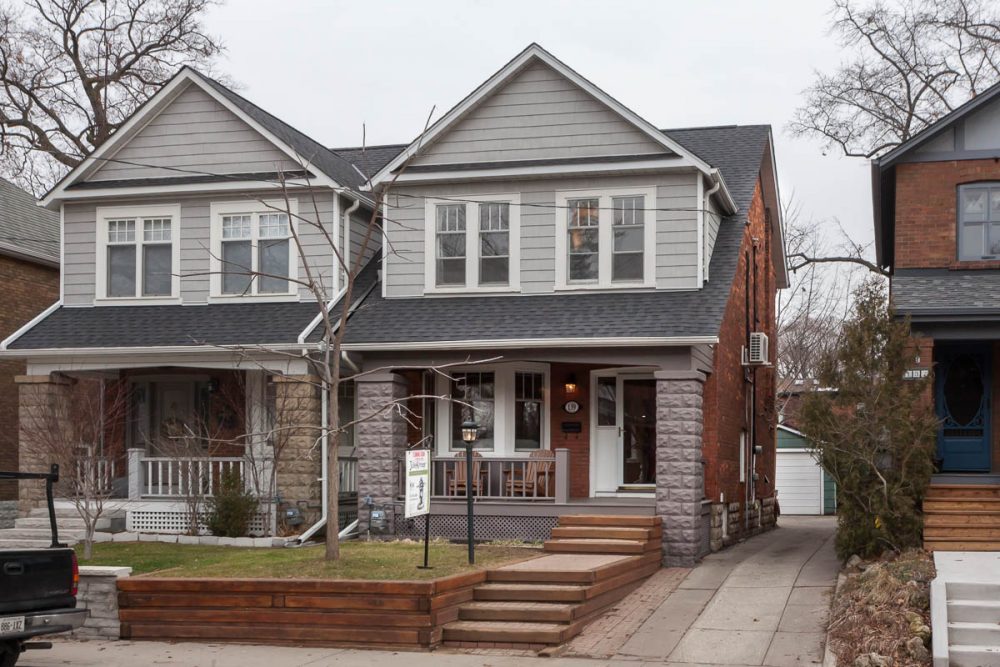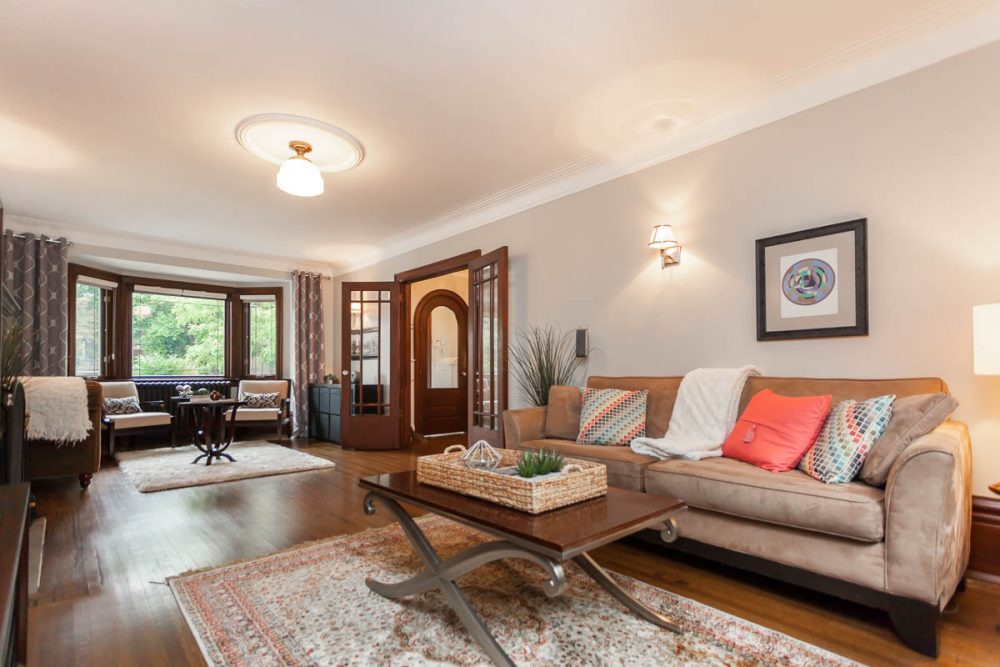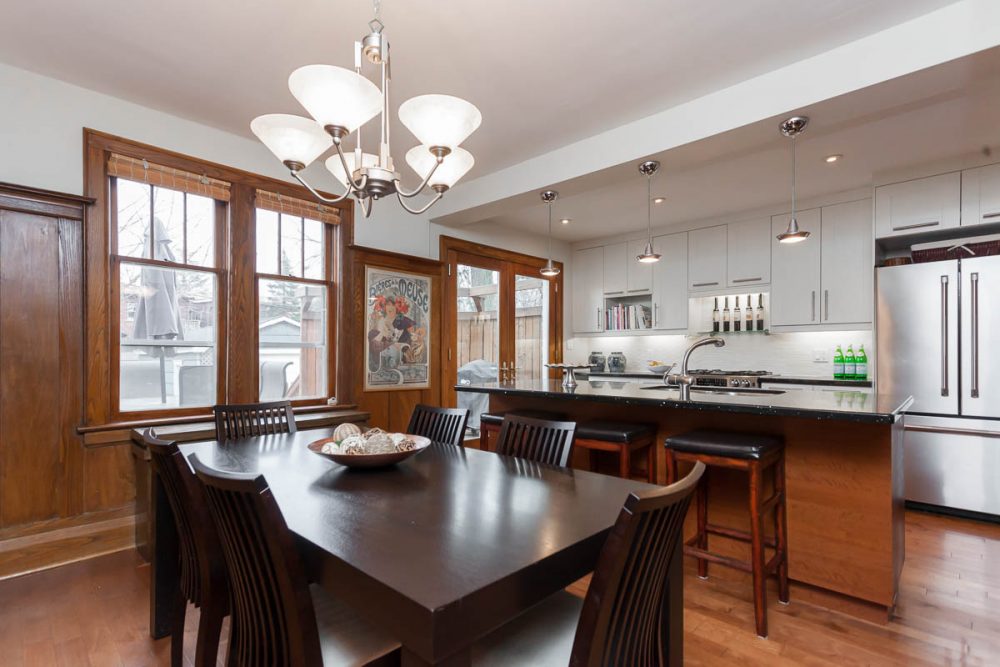We’ve talked about deciding what type of landlord you want to be and the in's and out's of buying rental properties, but at the end of the day dealing with tenants is the primary job of a landlord.
Finding responsible tenants, collecting rent and property upkeep are equally important when you’re a landlord. You also need to understand that when it comes to the tenant-landlord relationship in Toronto, the tenant holds most of the power.
As a landlord herself, Julie Kinnear, head of the Julie Kinnear Team of Real Estate Consultants, has to deal with tenants on a regular basis:
It's all tenant-driven. Once you have a tenant in there you have lost all of your rights.
Tenant Rights
If you decide one day to sell your property, having a tenant can cause setbacks and it can affect the market value of a property:
I deal with this all the time being a realtor, where we have a tenanted property and we can't get the tenants out before we even show it. So it might show poorly.
This is because you can’t break a lease, says Kinnear. So if the landlord has the property rented for the next year and they sell it, the new owner has to take on the tenant. The only exceptions to this are if the new buyer or their immediate family member plans to personally occupy the rented space.
A tenant who has occupied a space for a number of years can also impact the market value of a rental:
I have a property where there's a tenant who's been in there for 12 years and their rent is way below market value, no matter what. I can only make the rent go up one percent a year.
Choosing Your Tenants
One way to avoid these headaches is by finding responsible tenants. Having someone living in your property who pays rent on time, is quiet and courteous will make any problems much more bearable. So it’s important to do your homework.
Many landlords don’t like pets for the sole fact that they create more wear and tear on the property, but Kinnear believes that pet owners make good tenants:
To me, it means they're more caring people who are actually responsible. They have to be home and they take care of their valuables, just respectful generally speaking.
Couples usually make good tenants, but the old stereotype that single women make the best tenants is also often true in Kinnear’s experience:
They're often traditionally good because they don't tend to party like crazy.
You should also be looking for tenants who will stay as long as possible. If you have no plans on selling the property in the near future, having a tenant who doesn’t want to move can be great. After all, finding a new tenant can be a pain:
You're looking for somebody who's not going to be moving very quickly. So you don't want to get somebody who's super upwardly mobile and this is a short-term situation. And that's the thing about a single person. A single person has to be able to afford rent, and often they stay longer in one place because they can't afford to buy their own property.
Check References When Possible
Remember to check references, past landlords are your best resource:
The best thing to do is talk to their previous landlord. To see how long they've been in one place or another. See how loud they are, parties, complaints.
For Kinnear’s part, she says she often deals with immigrants to Canada:
It's the classic Toronto story. They're really well-qualified from a country they come from. The could be professionals in a variety of things. But they don't have any credit.
Families who come from overseas often have cash-in-hand, which may mean larger deposits, but not knowing their history can be worrisome:
You do have to do your homework. You call anybody you can. I speak to immigration officers. It's a crazy world out there.
Most of Kinnear’s advice comes from personal experience. She’s rented to nearly every different type of tenant over the years and has some general guidelines. Still, she says there are always exceptions:
We've had one situation where we had a revolving door of students but it actually worked rather well. It was just one guy after another that would rent it to his friends and his friends would take over the lease and that actually worked!
On the flipside, Kinnear has had trouble with normally tried-and-true tenant types:
We had a single woman, she lost her job, stopped paying rent and we lost a bunch of money. We've also had a pilot and I thought he was going to be great, but he was not what he advertised himself to be. So he moved out very quickly and we, again, lost money on him.
Ultimately, there are no hard and fast rules. Many times it comes down to the feel you get from an applicant. But no matter what, Kinnear says, check their references thoroughly.
Listing The Property
When looking for tenants, one option is to use a realtor, though Kinnear says not many Toronto landlords use this avenue. Still, a realtor can act as an extra safeguard against bad tenants:
Realtors check out their clients first. So they are a little bit more reliable usually. And then the agent gets the paperwork in, they handle the finances and the checks and all that kind of stuff.
If you do go the realtor route, it’s important to note that the landlord pays a month's rent to the agent. That’s divided half-and-half between the landlord’s agent and the tenant’s agent.
When it comes to showing apartments, Kinnear says she’ll often hold just one open house. She’ll advertise the property on Kijiji, say she’ll be at the property during a certain time of day, and she’ll get a lineup of interested people:
It's very similar to buying a home right now. You're trying to appeal to more than just the finances.
Property Management
Another important aspect to being a landlord is property maintenance. Kinnear owns her properties with a group of people, and she says they divide the responsibilities. One person is in charge of tenants, one is in charge of finances, and the final person is the property manager.
Kinnear says the maintenance side is where things can get frightening:
Property managers take a lot. They'll take a 10 or 15 percent cut right off the top, that's a cut of your rent. They'll also charge you for any expenses.
There are two ways to deal with this. Hiring a property manager or doing it yourself. There are pluses and minuses to each. Doing the work yourself can save you money, but it can also take up a lot of time. On the other hand, property managers can charge a lot, but they leave you free to pursue other interests. Ultimately, it’s about deciding what works best for you.
If you’re thinking about getting into the landlord business remember that, in Toronto, tenants come first. This can cause some headaches, but people will always need a place to live. Toronto’s vacancy rate is 1.3 percent, which means there isn’t a lot of spaces but a lot of competition. So there are good tenants to be found, and good relationships to be built. You just need to do the work.
TT00LR







